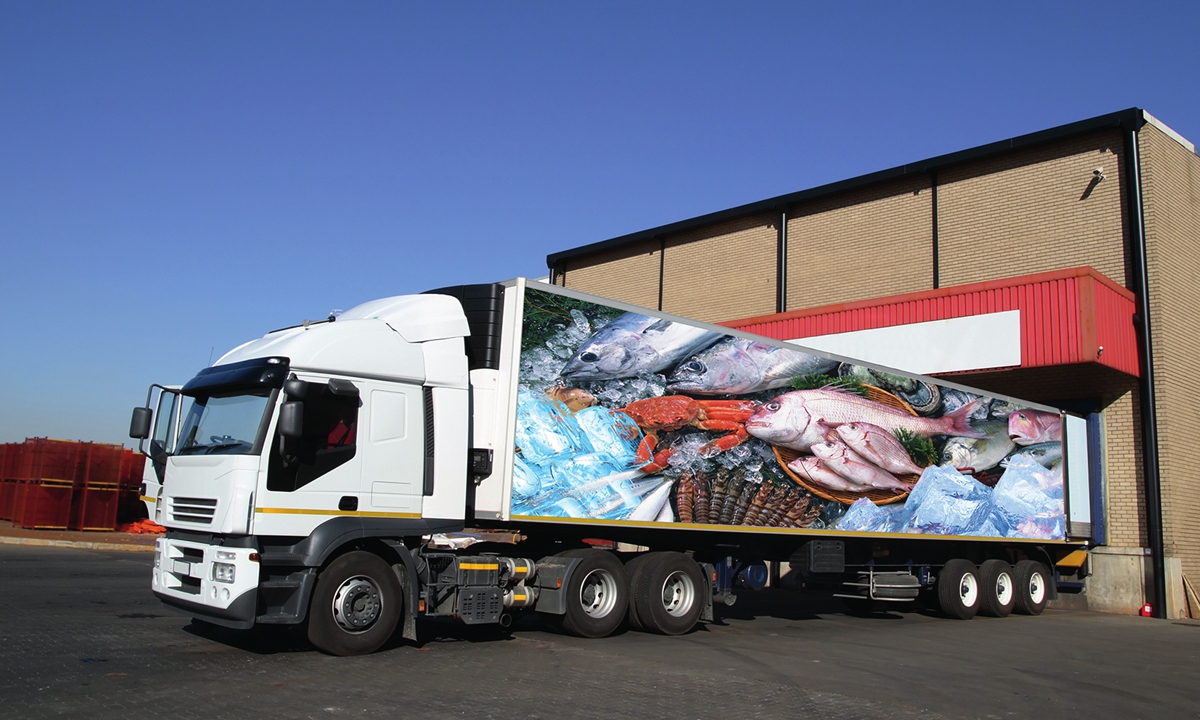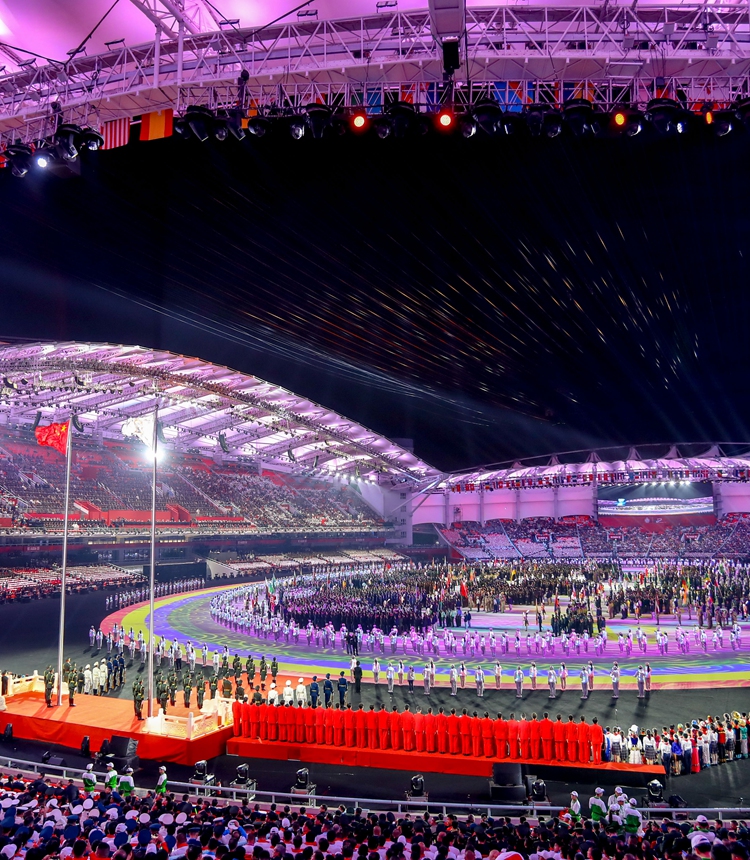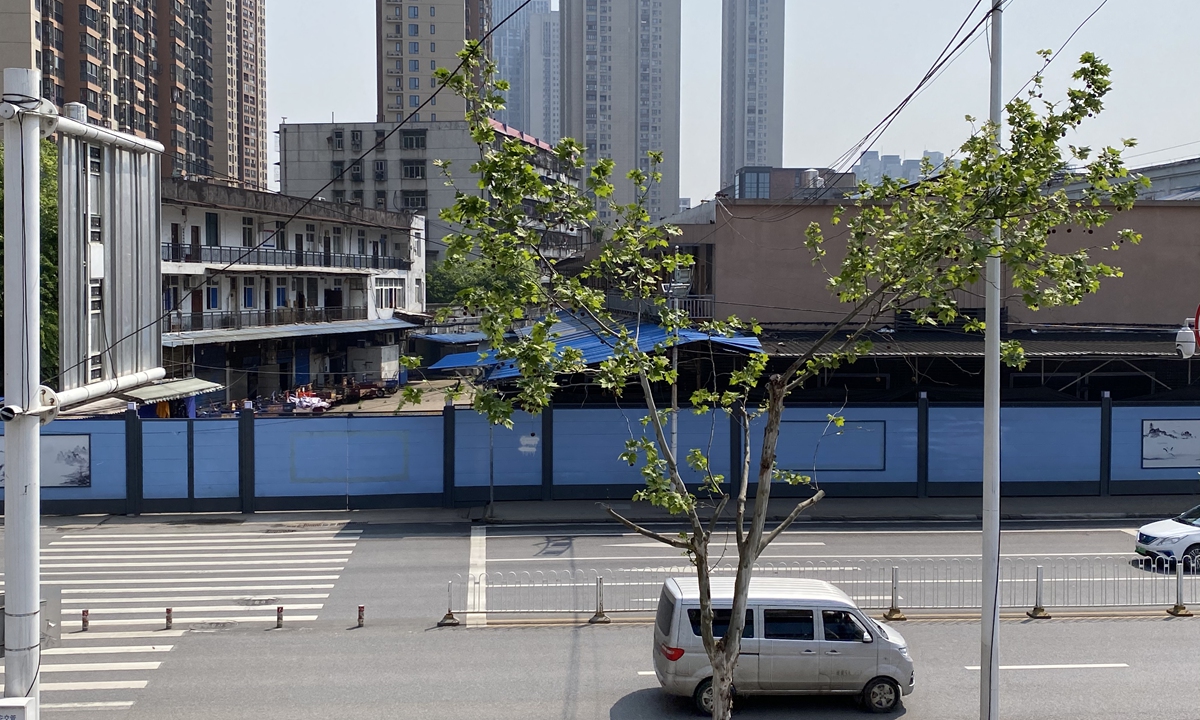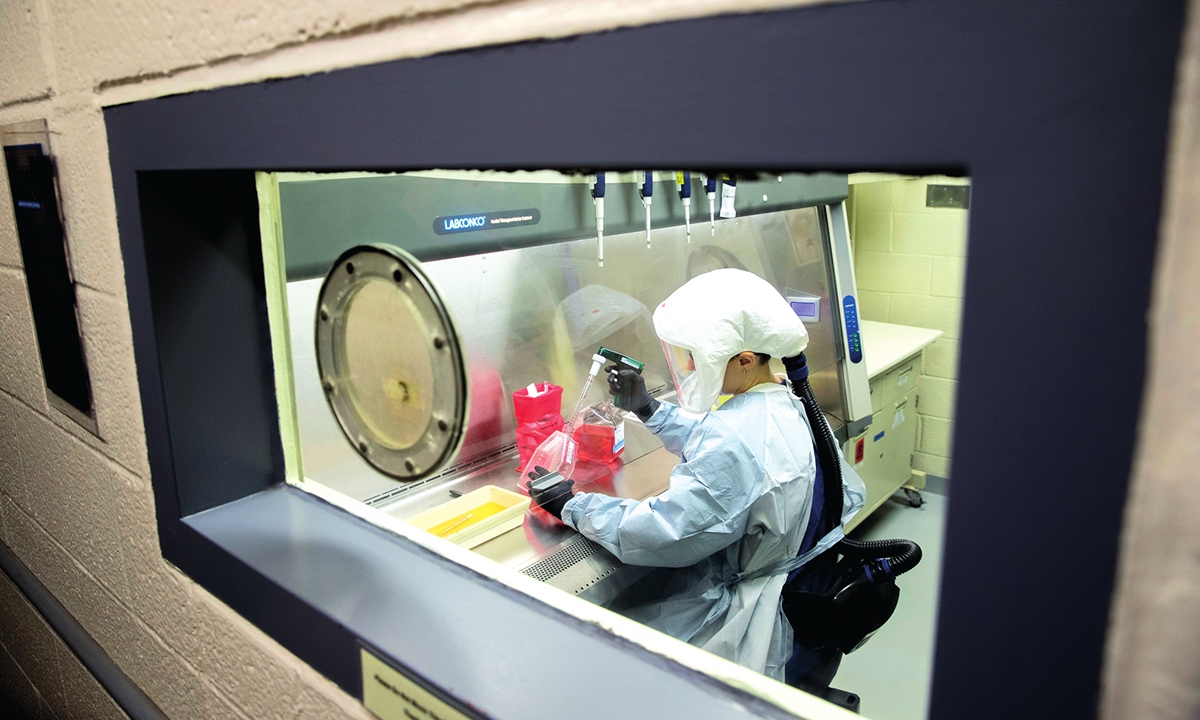The joint WHO-China report released at the end of March did not provide a definitive answer to the origins of the coronavirus, but the report mentioned some of the hypotheses that need more investigations, such as cold chain transmission and mass gatherings, specifically the 2019 World Military Games which was held in Wuhan in October 2019, about two months before the COVID-19 outbreak in the city. Global Times reporters conducted a series of investigations in Wuhan to find out why these hypotheses were mentioned and how big these possibilities were. Many unanswered doubts need further global investigations, such as tracing the imported food supply chain during the military games. Prominent scientists from the joint WHO-China study and Chinese health authority believe that tracking down these hypotheses was a process for the world to know possible early circulation of the disease and get closer to possible COVID-19 patient zero.
Some hypotheses of the coronavirus origins written in the joint WHO-China report came as a surprise to many, as they were not solidly supported by hard evidence, at least not yet, such as the cold chain transmission and mass gathering of the 2019 World Military Games. But scientists from the WHO-China virus tracing team believe studying these hypotheses help know the early cases and get closer to coronavirus patient zero.
In the WHO report, transmission through cold chain products is considered a possible pathway, and mass gathering such as the military games may facilitate the transmission of respiratory viruses, but further joint review of the data on respiratory illness from the on-site clinics at the games is needed, the WHO report said.
It might be too early to jump to conclusions, however, the possibility that coronavirus was already circulated in the months before December at specific mass gatherings, particularly the 2019 World Military Games, held from October 18 to 27, 2019 in Wuhan, cannot be ruled out. But where did the possibility come from? How big was the possibility? Are there any other possibilities that need further investigations?
The Global Times reporters visited Wuhan, talking to merchants in the Huanan seafood market, where the earliest cluster infections in China were reported, hotels accommodating international military athletes in 2019, the catering service provider for the World Military Games and prominent scientists from the WHO-China joint study group. The Global Times reporters also talked to dozens of Wuhan residents who are angry about the stigma the city has suffered, believing that the city was a victim, not the "culprit" of the epidemic and the virus was actually imported from foreign countries.
Scientists said there was no direct evidence linking the coronavirus origins with the 2019 World Military Games at this moment, but many unsolved doubts raised in these speculations needs further global investigations, such as tracing the imported food supply chain during the games.
Peter Ben Embarek, who led the WHO team to Wuhan in January, told the Global Times that as part of the anti-doping sports program, there were blood samples from the military games that are still available and could be tested to find out possible earlier patients.
A Chinese scientist from the WHO-China virus tracing team who requested anonymity told the Global Times that scientists had to consider all possibilities including international mass gatherings, and the military games hypothesis in the WHO report, because events like it are worth retracing to get more clues for the start and early circulation of the disease, and further investigations on these events may help scientists find earlier cases and get closer to the patient zero of COVID-19.

One year after Wuhan reopened, the hustle and bustle of the city returned. But one place remained closed. The Huanan wet market, where the first cluster of COVID-19 cases in the country were reported, was still cordoned off with blue fences on April 9. Many people who were apparently familiar with the market seldom glanced at it when they passed by the blue fences. Only several former merchants at the street corner quietly discussed the future of the market and their business.
Speculations about the market going to be torn down have been circulating among many former merchants, and some said they wished the market could reopen to clear the name of it, even though their business might need to be under strict supervision.
Now, about 60 percent of the former merchants selling meat, vegetables and seafood have moved their business to a market 16 kilometers away.
A former merchant surnamed Ming who used to sell vegetables in Huanan market, told the Global Times that he and many merchants saw foreign military personnel visiting the market during the military games.
"It was around 9 or 10 am, I saw about five foreigners in summer military uniform walking into the market from the parking lot," Ming recalled.
Another merchant surnamed Li who used to sell shrimps in Huanan wet market also told the reporters she and many other merchants witnessed the visit of some foreign military personnel during 2019 World Military Games.
"I did see them, and I saw several batches of foreign military personnel visit our market more than once," Li told the Global Times. She said that she saw those foreign military personnel talk to several merchants, but she did not see any of them buying stuff in the market. Both Li and Ming said that they did not see any of those foreigners show symptoms of cough or running noses.
The Global Times reporters also visited several hotels around the market and found that two hotels both within 3 kilometers range from the Huanan seafood market accommodated foreign delegation during the games.
A receptionist of the Shangri-La Hotel in Wuhan said that they hosted European athletes during the games.
Sheraton Wuhan Hankou Hotel, which is about 2.5 kilometers from the Huanan wet market, also received foreign participants of the military games including the Qatari military delegation and some of the US military delegation members, according to a receptionist of the hotel.
Another Chinese scientist with the joint WHO-China study experts' group who requested anonymity told the Global Times that whether foreign participants in the games visited the Huanan market was not verified, and if it was true, it could not be served as evidence for the claim that foreign delegates of the military games brought the virus to the market.
But the possibility was there and we need more evidence, the scientist said.
Reports about French and German athletes developing coughs and fever after returning from the military games began to circulate in May 2020, although it's not clear how they developed the symptoms and whether they got infected in Wuhan or in their own countries, there seemed to be no clear conclusion of these reports.
Although the French defense ministry later denied its athletes had any symptoms of suspected COVID-19, French media questioned that most medical staff of the French delegation to the games were physical therapists who probably did not know the pathological characteristics of novel coronavirus or had any experience in dealing with infectious diseases.
According to a report of French news channel BFMTV in May 2020, a number of French athletes returned from Wuhan with fever and body aches. But none of the returning athletes were tested.

Compared to the hypothesis that the virus was brought to Huanan market by foreign military personnel, a more possible speculation emerged was that the outbreak in Wuhan may have been triggered by imported food during the military games.
A Chinese catering service provider for the military games in Wuhan's Jiangxia district said that they did not provide any imported food, citing difficulty in supervising food quality.
According to a report by Hubei Daily in September 2019, Wuhan airport opened a special channel for the military games on September 18, 2019, for equipment and imported food.
Wuhan Customs said that considering athletes from different countries have different dining habits, athletes could bring their own food into Wuhan with the approval of the General Administration of Customs, according to the report.
An employee with a Wuhan-based technical company which provided the food inspection machine to the military games said that the company did use the machine to check imported food, although she declined to reveal more information, citing inconvenience.
So far, the detailed imported food list was not available, but the anonymous Chinese scientist said he learned that foods from European companies such as pasta was transported to Wuhan's restaurants and hotels through cold chain during the games.
"A variety of food and food ingredients from some Western countries were transported to Wuhan. Unfortunately, we did not have any samples, so there is no way to know whether these foods were contaminated or carrying the virus at that time," the scientist said, noting that it's very likely that these foods were provided to foreign delegation attending the games.
He said that it's hard to evaluate the possibility of whether the virus was imported through the food.
But the scientist pointed out that it is worth more investigations.
"If we could find some of the samples of imported food and study the early suspected COVID-19 cases in countries from where the food was imported to Wuhan during the military games, combined with gene sequencing analysis, we could find out more clues to whether the disease actually occurred in other countries earlier than Wuhan," the scientist said, noting that it requires global collaboration.
There has been mounting evidence that imported cold chain products could carry coronavirus, and in some cases could result in infections among human beings.
Predominant Chinese epidemiologists, including those close to the National Health Commission and Chinese CDC, have jointly called for field studies on the origins of the novel coronavirus in other countries, following more evidence of earlier cases emerging in other countries, including the US, Spain, Italy, France, Brazil and India.
The coronavirus may have been circulating in Italy since September 2019, according to a study released in November 2020 by the National Cancer Institute (INT) in Milan. If true, it would mean that the virus was present in Italy three months before it was first reported in China in December 2019, and five months before the first official case was recorded in Italy on February 21, 2020.

According to the WHO report, during the Military Games, four African participants were diagnosed and treated for malaria, and one American citizen presented with gastroenteritis.
A review of the event showed that no appreciable signals of clusters of fever or severe respiratory disease requiring hospitalization were identified, but the WHO recommended more review of the data on respiratory illness from on-site clinics at the military games.
The anonymous scientist said they have analyzed some of the data collected from on-site clinics, but no valuable clues were identified so far, partly because the data was incomplete.
"The task is difficult to push forward at this time as we have no samples left even if there were any suspected cases with symptoms sharing similarity with COVID-19," the scientist said.
However, judging from the symptoms of the malaria and gastroenteritis the five foreign athletes were diagnosed with, both diseases share common symptoms with COVID-19.
Wuhan Jinyintan Hospital which received the foreign patients explained in February 2020 that the cases had nothing to do with COVID-19, following speculation that those foreign patients were carriers of the novel coronavirus.
But according to the scientist, both malaria and COVID-19 could lead to fever and some COVID-19 patients do have stomach symptoms similar to gastroenteritis.
"If the doctors made a clear diagnosis of the foreign athletes, then the cause of their diseases was known, the possibility of co-infection of malaria and COVID-19, or gastroenteritis and COVID-19 could not be ruled out," the scientist said.

Although from the scientific perspective there is no direct evidence at the moment to prove that the outbreak in Wuhan was caused by the military games, many Wuhan people who were blamed along with the city for being the culprit for the global pandemic vehemently expressed their abhorrence of the West's slander and are clinging to the firm belief that Wuhan was a victim, and that the virus was brought in from foreign countries.
The Global Times interviewed a dozen locals on the streets about their views on the coronavirus origins. Many claimed the military games hypothesis could not be ruled out and urged further investigations.
Huang Haixia, who has lived in Jiqing Street for years, believes that it seems that the West led by the US is deliberately throwing mud at Wuhan to conceal their own misdeeds.
"Why does the US keep claiming Wuhan is the origin of the coronavirus, but when we questioned its athletes during the Wuhan Military World Games in October 2019, the US dared not show any test results or health proof?" Huang said, noting that she believed the US must be hiding something, and that WHO experts should go to the US for coronavirus origins research. Some locals also urged the WHO to investigate the US' Fort Detrick Laboratory.
When talking about the term "Wuhan virus" deliberately used by the former US secretary of state, a taxi driver surnamed Peng said he was very upset, saying he suspected that the virus was leaked from Fort Detrick lab.
A local resident surnamed Zhang said the Fort Detrick lab, the Military World Games in Wuhan and the European countries which found earlier cases in 2019 should be the next steps for the WHO investigation team.
Yang Zhanqiu, deputy director of the pathogen biology department at Wuhan University, told the Global Times that although there is no scientific evidence to prove the claims by some Wuhan residents, it is understandable that they would express such emotional remarks after their home city has suffered from malicious and groundless smears by the Western politicians on the virus origin more than one year since the outbreak. They felt wronged, disgusted and suffered from injustice, discrimination and even attacks.
Yang urged the WHO expert team to investigate whether some cases diagnosed with influenza during the 2019 influenza epidemic in the US were in fact infected with the coronavirus, which would be "very helpful" for the international virus tracing investigation.
Yang said he had visited the Fort Detrick Laboratory years ago and learnt that lab stores samples for a long time for scientific research, so he believed that many samples during the influenza epidemic have been preserved by American health departments. "But the US seemed reluctant to offer the samples for the WHO investigation," he said.
It is possible that the Wuhan Military World Games spread the virus to the host city chronologically, but the possibility is low, Yang noted, saying the this type of virus is unlikely to have remained dormant for months before the outbreak.
It is more likely that the virus was imported through the cold chain, noted Yang.
Chinese scientists said global scientists under the guidance of the WHO need to expand their studies on animals and countries to test more samples they collected.
We may not find the origins of the coronavirus anytime soon, but tracking down each possibility, including cold chain products and the military games, is part of the effort needed as we strive to get closer to the truth and the origins, Chinese scientists said.
